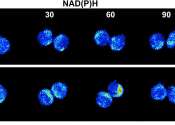Inulin-gel-based oral immunotherapy may offer long-awaited treatment for food allergy sufferers
A study from the University of Michigan has identified a potential new treatment for food allergies in inulin, a naturally occurring plant fiber commonly used as a supplement, a prebiotic in soda, a replacement for sweeteners ...
Jul 9, 2024
0
47









